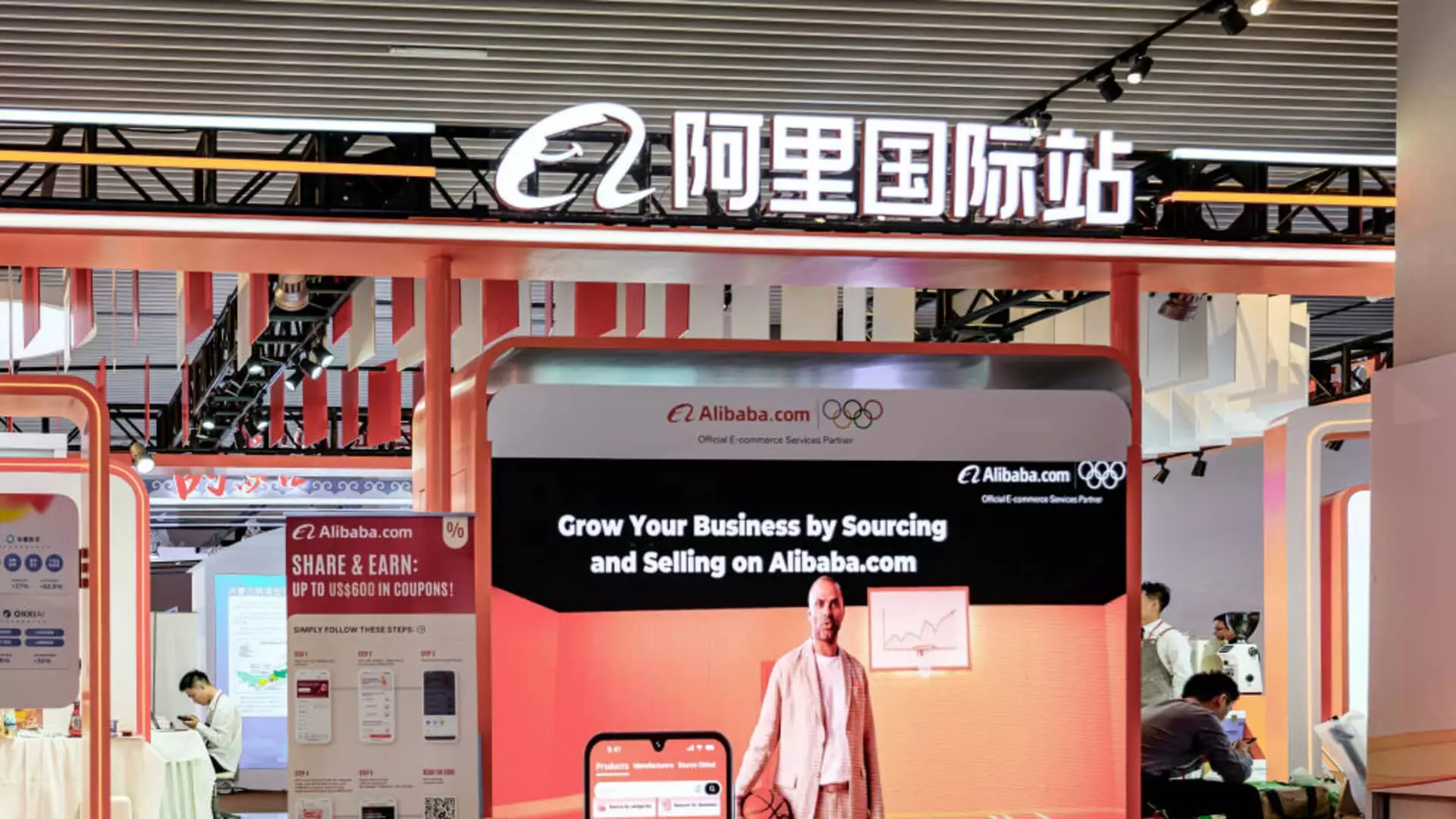In an era where technology often shapes the trajectory of business, Alibaba has introduced a pioneering tool aimed at redefining how small businesses access sourcing solutions for supplies. This innovative step presents an amalgamation of e-commerce and artificial intelligence (AI), primarily in response to the growing demand for efficiency and profitability in global trade.
On a notable Tuesday in Beijing, Alibaba, the Chinese e-commerce powerhouse, unveiled its AI-enhanced search engine named Accio. This tool caters specifically to small enterprises across Europe and the Americas, facilitating their sourcing processes. By harnessing the power of generative AI—a technology often likened to that behind the widely popular ChatGPT—Alibaba has undertaken a strategic initiative to boost sales by improving the purchasing intent of businesses using the tool.
Kuo Zhang, president of Alibaba.com and vice president of Alibaba International, highlighted that preliminary trials revealed a remarkable 40% uptick in purchase intent when utilizing Accio in contrast to traditional search engines. This data underscores the potential impact of advanced AI in streamlining and optimizing procurement operations for small businesses that may otherwise struggle to compete on price and efficiency.
Accio—named after a spell from the beloved Harry Potter franchise—serves as a web-based tool available in multiple languages, including English, German, French, Portuguese, and Spanish. This multilingual capability allows for broader accessibility among diverse global businesses. The strength of Accio lies in its user-friendly approach; by entering simple text or image prompts, businesses can swiftly locate wholesale products tailored to their needs. Furthermore, the tool offers insights into consumer popularity and projected profit margins for these products, assisting entrepreneurs in making informed purchasing decisions.
A noteworthy demonstration showcased how a budding sports entrepreneur leveraged Accio to identify potential suppliers for a new line of pickleball products. Upon completing a search, the tool provides a variety of procurement options, enabling the entrepreneur to engage directly with suppliers for further negotiations. This facilitates a seamless transition from product discovery to procurement, something that could significantly enhance operational efficiency for small businesses.
The Technology Behind Accio
The backbone of Accio is rooted in Alibaba’s Tongyi Qianwen, a sophisticated large language model (LLM). This technology enables Accio to process and analyze vast datasets, significantly enhancing the relevance of the search results it provides. While the company has not disclosed whether Accio incorporates AI from external sources, Zhang has indicated that the tool utilizes information derived from an impressive 50 million businesses within the Alibaba International network, and boasts over 1 billion product listings from industries spanning more than 100 different markets.
The introduction of Accio also coincided with Alibaba’s ongoing efforts to innovate its international services. Recently, the company rolled out an advanced AI translation tool to aid merchants in engaging with customers across different languages, claiming superior translation capabilities compared to competitors such as Google and DeepL.
The Broader Context: AI in E-Commerce
It is crucial to recognize that Alibaba’s advancements occur within the broader landscape of e-commerce, where many businesses are still exploring ways to capitalize on AI technologies. During the recent Singles Day shopping festival, a significant portion of merchants reported utilizing generative AI tools, reinforcing the importance of innovation in maintaining a competitive edge. According to a Bain & Company survey, 56% of merchants experienced a notable positive impact on their productivity through the use of AI technologies such as customer service automation and content generation.
Despite the rapid growth of Alibaba’s international arm, it remains apparent that its primary revenue source continues to be its domestic platforms, Taobao and Tmall. The transition towards AI applications signifies an acknowledgment by Alibaba of the shifting dynamics of consumer behavior and the competitive necessity of technological adaptation.
Alibaba’s Accio represents not only a technological leap for small businesses but also a strategic move within the larger narrative of the global e-commerce industry. As companies look to harness the capabilities of AI to drive efficiency and profitability, tools like Accio may very well become indispensable assets in their operational toolkit.

